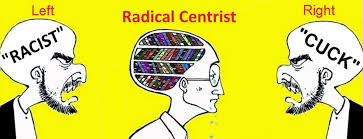
r/K selection theory is an ecological concept that applies to the attitudes that a breeding creature will have towards its offspring. Simply put, all sexually reproducing creatures fall along a spectrum that has zero parental input into the survival of the offspring at one end (the r end) and extremely high parental input at the other end (the K end).
The classic r-strategy is one that has a very high rate of breeding, and a correspondingly very low rate of parental investment, like that of a reptile or a mouse. The classic K-strategy, by contrast, is one that has a low rate of breeding and a correspondingly high rate of parental investment, like that of an elephant or a human being.
As above, so below: the thinking of people can be understood along this exact same parallel. Although biologists don’t look at it like this, it’s possible to view this r/K arrangement as representing the degree of solidarity that exists between human generations.
The r-strategy could be compared to the kind of male that gets a woman pregnant and then disappears from the scene before he is called upon to provide any resources for the offspring. It is even described as “opportunistic”, in much the same way that that kind of male behaviour is.
The K-strategy would then be compared to the kind of male that forms a monogamous pair bond for life, with no intention of finding future female partners to inseminate, and who makes a large investment in terms of time and/or energy in making sure that the offspring of the bond grow up to be fit to deal with the selective pressures of life.
Practically speaking, a male running the r-strategy would have to inseminate more females than a male running the K-strategy, because fewer of the former male’s offspring could be expected to survive to adulthood, on account of the lower degree of parental investment they received.
Moreover, a smaller proportion of those who did survive to adulthood would reproduce, because those who did survive would more frequently be socially or emotionally defective in comparison to those who had a more natural level of paternal investment.
The r/K selection strategy parallels closely the objective of the various political wings. What’s odd, though, is that both wings of the left-right spectrum see themselves as representatives of the K-strategy and their opponents as the representatives of the r-strategy.
Conservatives would consider that the optimal K-strategy would be a monogamous marriage, and preferably a Christian one, and this is the kind of family that appears to be held up in our culture as some kind of ideal. In such a marriage the father would stick around and provide a large amount of investment in a relatively small number of offspring.
They would consider that paying out money in welfare is a mistake because it incentivises r-strategy men to impregnate women and then disappear. In many cases the fear is that welfare incentivises women to get inseminated by dead-beat males and that the rest of us therefore have to carry the burden for children who would not otherwise have existed.
Liberals would consider that the K-strategy involved paying an amount of tax that was sufficient to cover all the requirements every citizen has to grow into a healthy, productive adult. This would mean a high level of investment in every child – schooling, healthcare, freedom from abuse and neglect etc.
They would consider the r-strategy to be what religious conservatives do when they have large numbers of children in adherence to a religious admonition to populate the Earth, and then raise them to be fearful, prejudiced and superstitious.
It appears somehow natural, when reading about the difference, to associate humans and mammals with the K-strategy and reptiles and insects with the r-strategy. Probably this is why both sides of the politico-retard spectrum consider themselves to represent the K-strategy.
Oddly, this gives us a potential way forward for the political system. If both left and right can agree that a K-strategy is morally superior to an r-strategy, then why not forget left and right entirely and run the system along the lines of a K-strategy?



